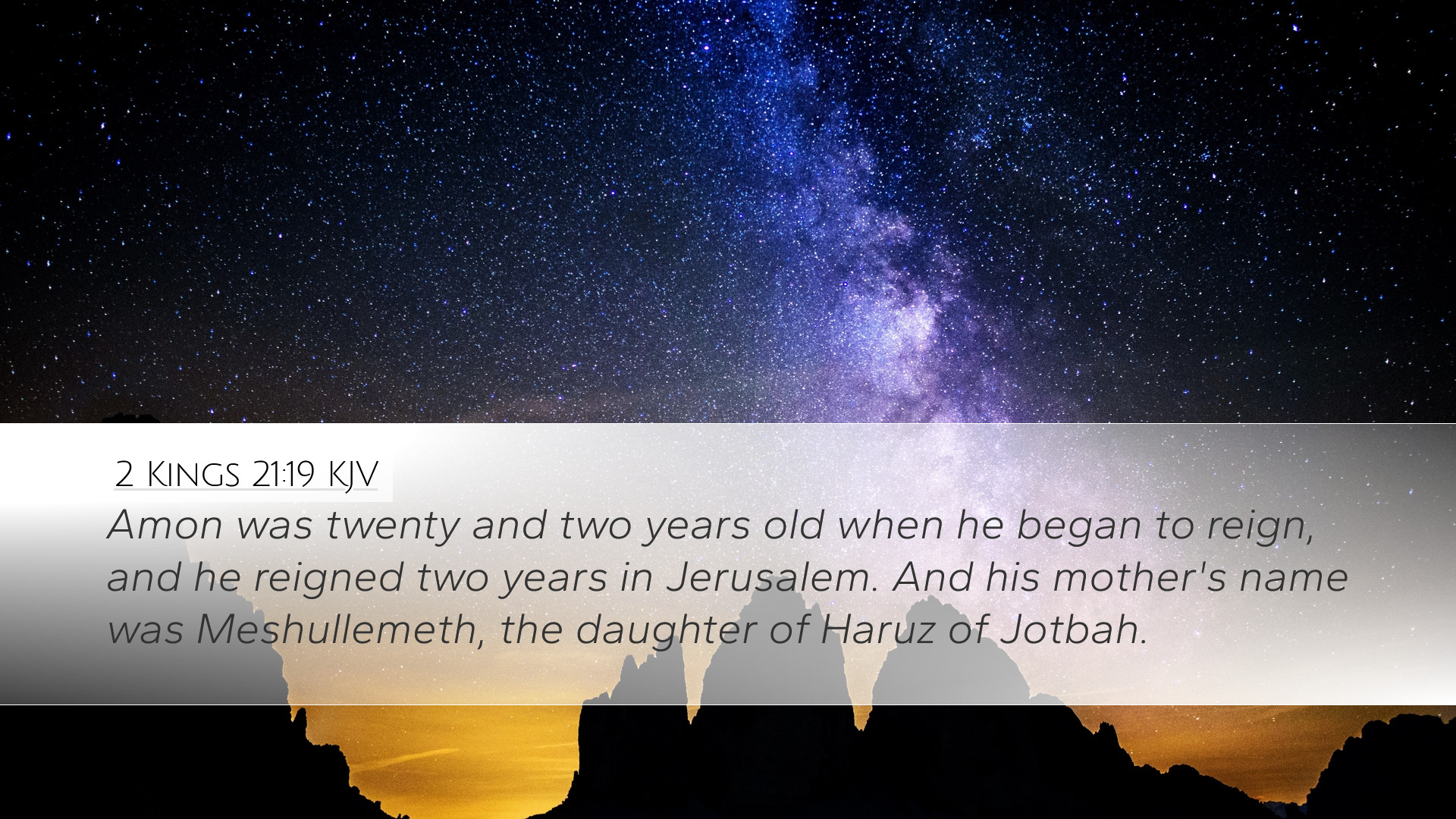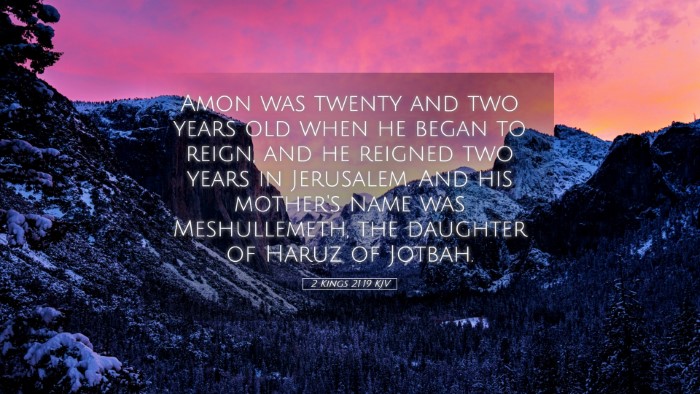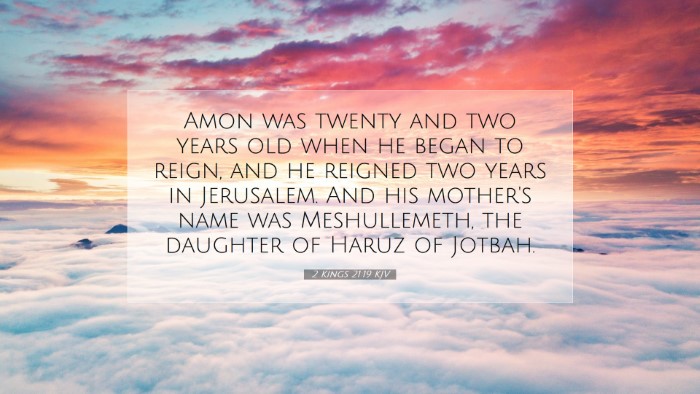Bible Commentary on 2 Kings 21:19
Verse: “And Amon was twenty and two years old when he began to reign; and he reigned two years in Jerusalem. And his mother's name was Meshullemeth, the daughter of Haruz of Jotbah.” (2 Kings 21:19)
Introduction
This commentary will explore 2 Kings 21:19, focusing on the reign of King Amon of Judah. By assimilating insights from notable public domain commentaries, including those by Matthew Henry, Albert Barnes, and Adam Clarke, we will examine the implications of Amon's reign, his influences, and the theological lessons that arise from this short yet significant passage.
A Historical Context
Amon, the son of Manasseh, ascended to the throne at just 22 years old, a factor that suggests both the vulnerability of a young ruler and the challenges he faced in a politically and spiritually tumultuous environment. This passage serves as a brief entry point into a complex narrative concerning Israel's kings.
-
Matthew Henry emphasizes Amon's emergence from a lineage of unrighteousness, particularly given the reign of his father, Manasseh, who was known for his idolatrous practices and egregious sins against God. Henry notes that Amon's brief rule is indicative of a monarchy steeped in the corruption that his father had imparted.
-
Albert Barnes remarks on the importance of Amon's age at the time of his ascension. He suggests that leadership at such a young age can lead to instability, as evidenced by Amon’s failure to establish a stable and commendable reign. Amon is often viewed as a ruler who continued in the sinful paths of Manasseh without demonstrating a desire for repentance or reform.
-
Adam Clarke provides additional commentary on the tragic brevity of Amon's reign. He contends that the king's lack of spiritual grounding and the absence of a righteous input in his governance led to his downfall. Clarke refers to the surrounding political pressures and the influence of both internal and external forces as catalysts for Amon’s ill-fated rule.
Character of Amon
Amon's character is largely defined by the legacy of his father. His reign is marked by a continuation of idol worship and rebellion against Yahweh. Scholars posit that Amon lacked the self-awareness to alter the destructive path laid before him by Manasseh.
-
Matthew Henry illustrates that Amon's infatuation with pagan rituals overshadowed his duties as a leader. His failure to heed the lessons of history and the warnings from prophetic figures led to a continued degradation of the spiritual condition of Judah.
-
Albert Barnes interprets Amon’s decision-making as a profound rejection of his heritage. Despite witnessing the consequences of his father’s errant ways, he chose not to repent or reform, signifying a complete disregard for God’s covenant.
-
Adam Clarke identifies that Amon's short-lived authority stands in stark contrast to the potential for reform. Instead of repenting and leading Judah towards restoration, Amon indulged in his father’s immoral practices, resulting in a trajectory that perpetuated divine judgment against the nation.
Theological Significance
The implications of Amon’s reign extend beyond historical record; they present theological reflections pertinent to leaders and believers today:
-
Legacy of Leadership: Leaders carry a profound responsibility, with their actions impacting generations. The actions of Amon exemplified how the sins of a father can influence the next generation, reminding current leaders to be conscious of their spiritual legacy.
-
Call to Repentance: The narrative of Amon serves as a severe warning against stubbornness and pride. The continuous cycle of sin illustrates the need for repentance, not just for the sake of leadership, but for the spiritual wellbeing of the entire community.
-
The Weight of Influence: Amon's decision-making was influenced by his surroundings, highlighting a reality that leaders must be careful of external pressures that lead them away from divine mandates. Today, the church calls for leaders to measure their influences against the truth of Scripture.
Conclusion
In summary, 2 Kings 21:19 encapsulates the reign of King Amon, a young ruler whose choices reflected the deep-seated sins of his predecessors. Through the insights of Matthew Henry, Albert Barnes, and Adam Clarke, we see that Amon's life serves as a cautionary tale for all leaders and believers. The call is not only for individual responsibility but also for corporate accountability within the community of faith. Heeding the lessons from Amon’s tragic reign could lead to a renewed commitment to righteous leadership, foundational repentance, and the pursuit of holiness.


